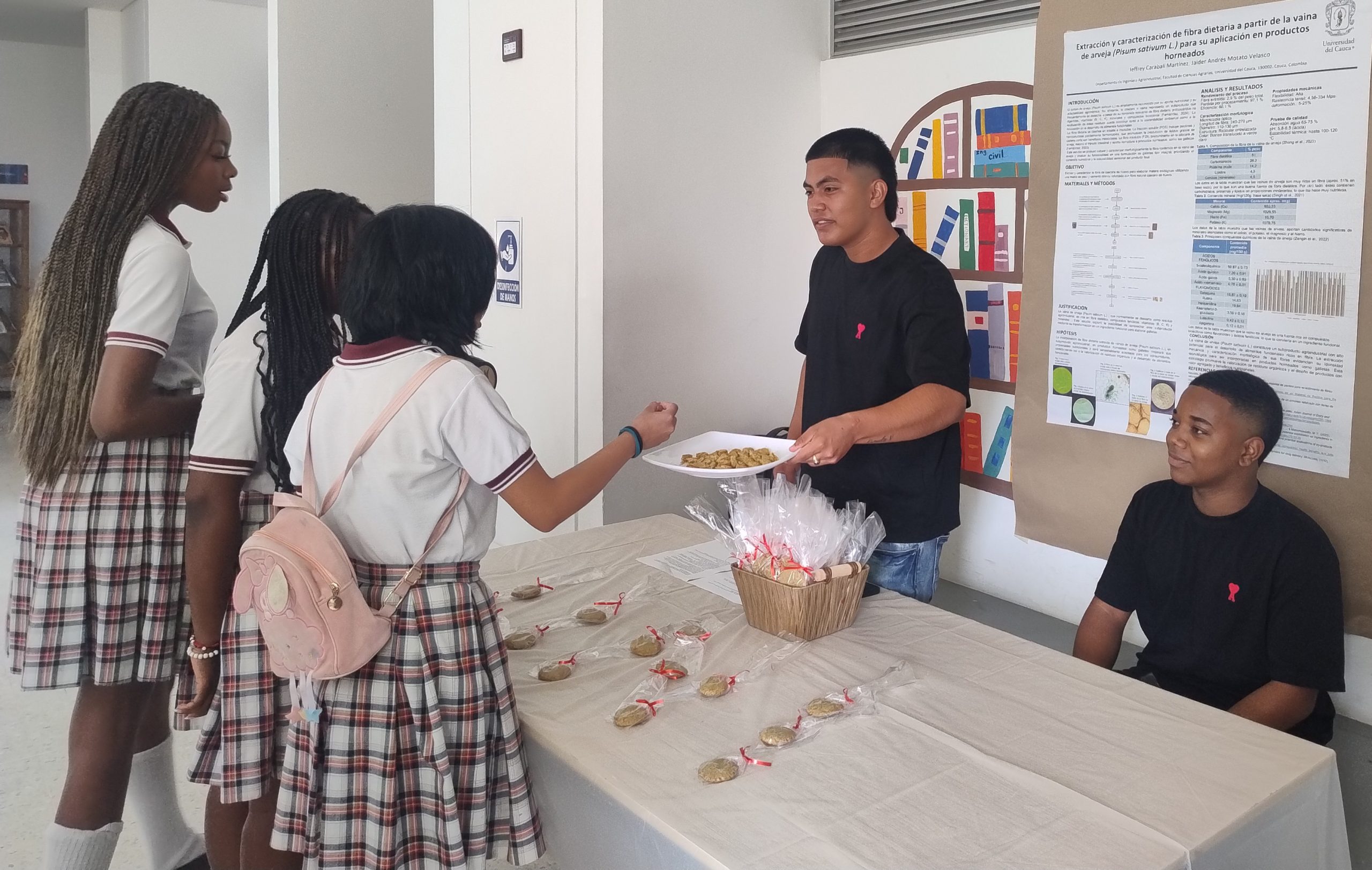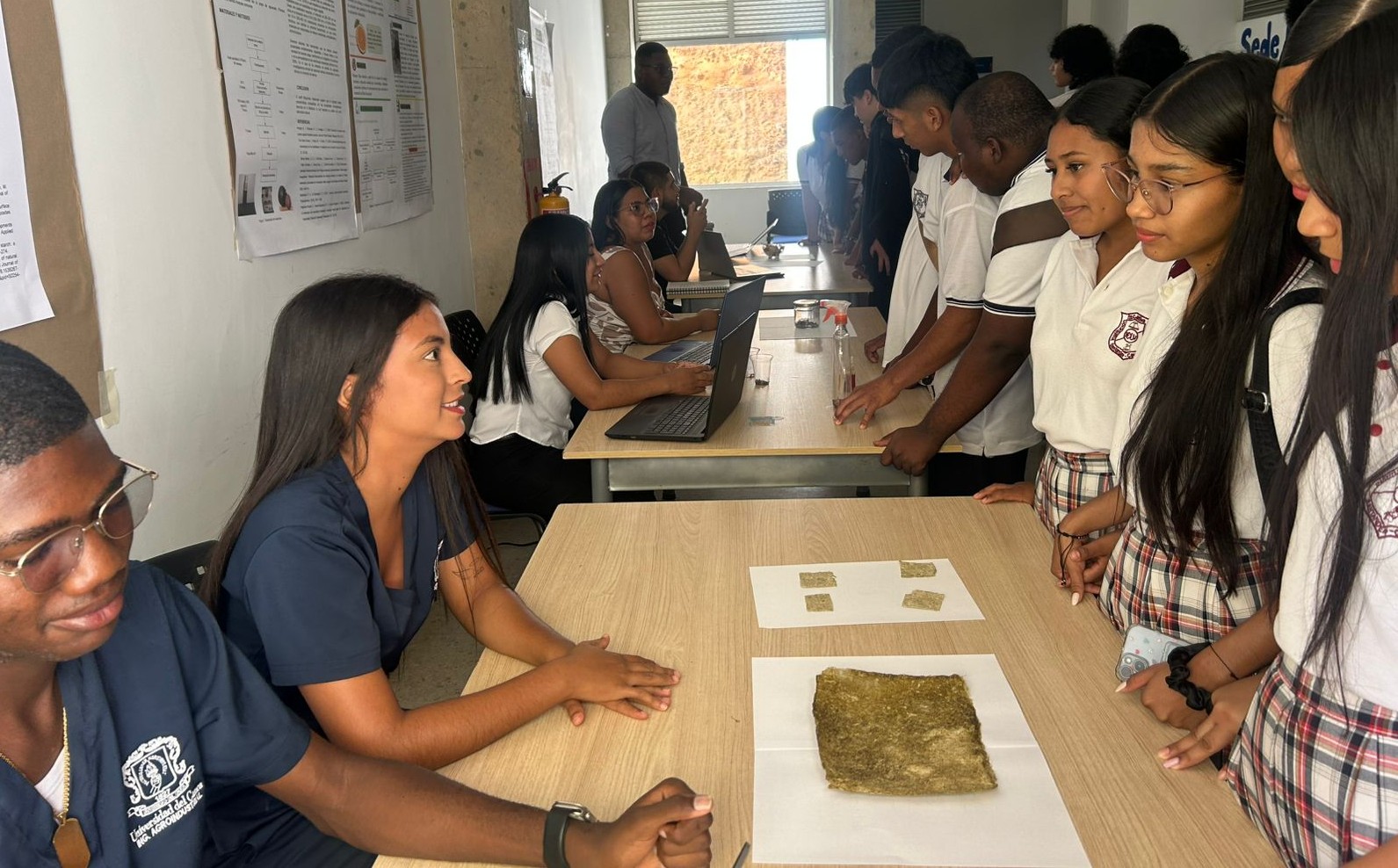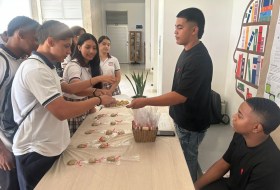News
Unicauca Biotransforms; an enriching meeting space in Santander de Quilichao
In an unprecedented event, the Unicauca campus located in Santander de Quilichao became the stage for Unicauca Biotransforms, an initiative that highlighted the innovation and environmental commitment of students from the Agroindustrial Engineering program, who presented the outcomes of their classroom-integrated projects developed in the subjects of Biology and Processes 4.
The Unicauca Biotransforms event, held at the Santander de Quilichao campus of the Caucana Alma Mater, was the result of the efforts led by Professors Margarita Salazar and José Fernando Solanilla Duque. Through integrated classroom projects and a pedagogical approach, they encouraged first-semester students of the Agroindustrial Engineering program to explore sustainable solutions by utilizing agro-industrial waste.

Provided photo
Thus, on June 4, 2025, students showcased the results of projects focused on transforming agro-industrial waste into sustainable products such as organic fertilizers and biodegradable materials. The activity also welcomed high school students and a broader audience, including individuals interested in the results of these compelling initiatives. This strengthened the bond between academia and the community, a clear example of how the social appropriation of knowledge can be promoted.
This event not only showcased the potential of future agroindustrial engineers in generating sustainable solutions but also reaffirmed Unicauca’s commitment to holistic education and social responsibility. By integrating theory and practice and encouraging dialogue with various social actors, educational processes that transcend the classroom and contribute to sustainable regional development are being solidified.

Provided photo
"Unicauca Biotransforms was not just an exhibition, it was a space for motivation and inspiration. It was a place where knowledge intersected with the needs of the countryside, industry, and society. It is, without a doubt, a determined commitment to an agro-industry rooted in identity, innovation, and deep respect for the territory, truly about 'doing with knowledge'," expressed Jorge Luis Sánchez Ortega, Coordinator of the Agroindustrial Engineering Program.
It is worth noting that as part of the integrated classroom projects in the Biology subject, students have carried out meaningful experiences with a clear objective: to apply scientific knowledge to real-world contexts by making use of agro-industrial waste, particularly through the extraction and characterization of plant fibers. This challenge has not only helped them understand biological and cellular principles but also allowed them to engage in solving environmental problems and developing value-added products during their undergraduate education.
This is, quite literally, transformative work. Why? Because in these projects, students used waste materials such as pineapple, orange, and soursop peels, snake plant leaves, palm fruit husks and rachis, sugarcane bagasse, and eggshells, among others, as raw materials to extract fibers with potential applications in both food (such as encapsulates or edible structures) and non-food sectors (such as biomaterials, packaging, filters, etc.).

Provided photo
Regarding this, Professor Margarita Salazar from the Industrial Engineering program and leader of the event, stated: “It is a great source of pride to witness how our students apply the knowledge acquired in class to develop innovative solutions that positively impact their surroundings. During the Unicauca Biotransforms event, it was rewarding to see students interact with the community, presenting projects that transform agro-industrial waste into food products and sustainable materials.” She also emphasized that the projects not only demonstrate a solid understanding of biological and process principles but also reflect a strong commitment to the green economy and pollution reduction, aligning with the Sustainable Development Goals.
There is no doubt that at Unicauca, we have talent! And as we commemorate World Environment Day, celebrated every June 5, our institution proudly acknowledges and celebrates these kinds of initiatives, which strengthen students’ academic training while contributing to the social appropriation of knowledge around key sustainability issues.
Written by: Communications Management Center


